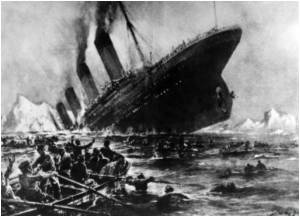A new study has revealed that large-scale tragedies don't have the same emotional effect on people like smaller tragedies do.

"We see this time and again on the news, where a missing person is featured as a leading story for months because there is emotional interest wrapped up in that single individual," said Nordgren.
"But, if you think of current stories such as the Chilean miners or the people affected by the BP oil spill, we find that it’s harder to relate to those victims unless you get to know their personal stories. The bottom line is that it’s difficult for people to connect when there are many faceless victims, he said.
To test their theory, the researchers conducted a series of three experiments.
In the first study, Nordgren and Morris asked participants to read a story about a financial advisor who defrauded his clients.fter reading the story, participants were asked to evaluate the severity of the crime and to recommend a punishment for the perpetrator, as well as to describe one of the participants in the case.
As predicted, participants in the small-scope condition judged the fraud case more harshly and recommended a longer jail sentence for the perpetrator.
Advertisement
The participants read a story about a food processing company that sold tainted food that made people sick.
Advertisement
Finally, a third experiment examined the scope-severity paradox in real jury verdicts. The researchers looked at the outcomes of 133 U.S. court cases between 2000 and 2009 in which someone had been negligently exposed to either asbestos, lead paint or toxic mold.
They found that total damages decreased as the number of people affected increased.
"In all three studies, we found that increasing the number of people victimized by a crime actually decreases the perceived severity of that crime and leads people to recommend less punishment for crimes that victimize more people," said Nordgren.
According to Nordgren, the paradox is problematic especially in situations involving mass crimes like genocide in which harm is extreme and widely dispersed among a large population of people.
The study entitled "The Scope-Severity Paradox: Why doing more harm is judged to be less harmful," was published in the Social Psychological and Personality Science.
Source-ANI









